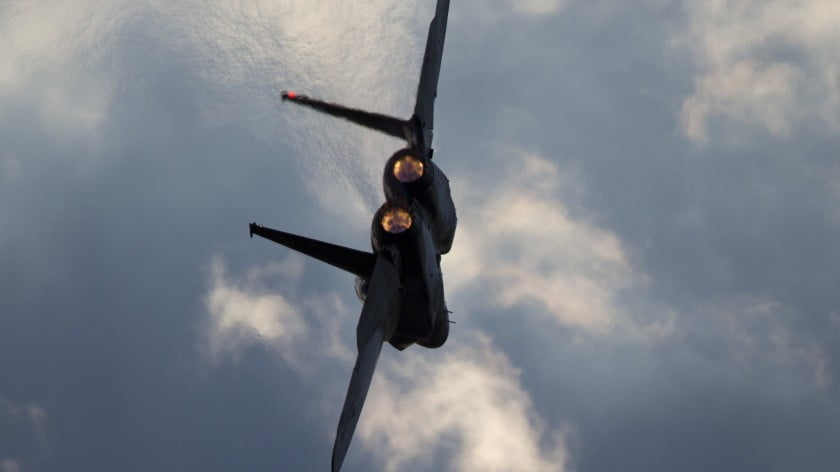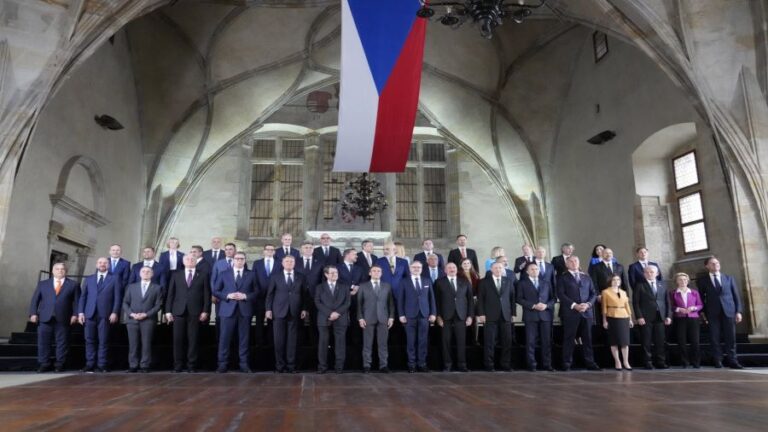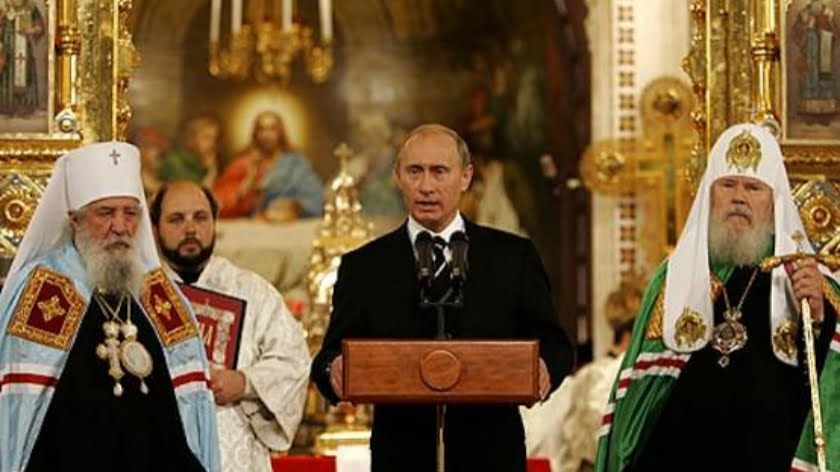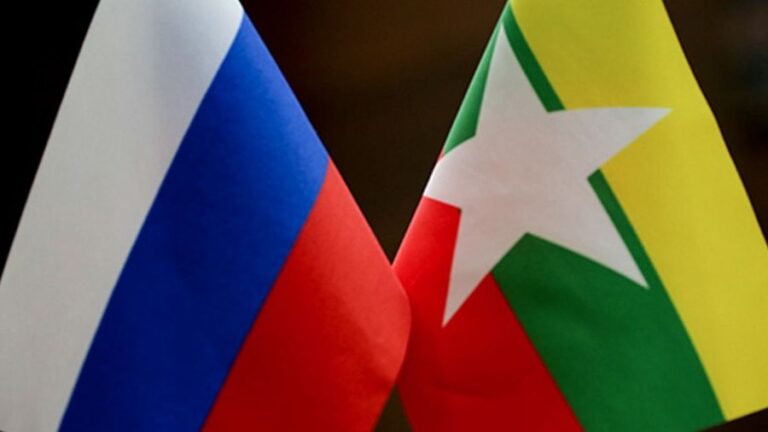Why Israel’s Airstrikes in Syria Are a Sign of Weakness, Not Strength
Why does Russia behave the way it does in relation to Israeli airstrikes in Syria?
I will proceed from what seems to be an established fact (SANA confirmed) that on the night of January 11th Israel hit one depot at Damascus international airport. I.e., material damage. 12 projectiles were fired in total. Syrian air defences worked, and by all accounts they were as effective as they were in the previous Israeli bombing run (80% accuracy approx.).
Even if Israel had hit two warehouses or a local farm in addition, then it changes absolutely nothing. What the Syrian Army lost can be replaced with little risk; Iran has seemingly supplied the Syrian Army very well and continues to do so at will.
How many times has Israel hit targets in and around Damascus and its airport since 2015? The answer is “many”. And each attack resulted in more or less the same thing – small material losses. A few times troops were killed in a couple of cases, but this can hardly be described as large losses (yes, war entails human losses – shocking, isn’t it?).
There is some misunderstanding in regards to why Russia sent the S-300 to Syria and upgraded the Syrian Army’s air defence network, integrating it into its own network. Like with the S-400, there was the assumption that Israel would never bomb Syria again, or that a NFZ was created.
Like with the S-400, this is not the case at all. As I explained once upon a time in an older article, the deployment of the S-400 was the logical next step after establishing the Minsk Agreements and neutralising what the West was trying to do in Ukraine.
What was the West trying to do in Ukraine? Mainly: drag Russia into a fratricidal sabbath and signing the death warrant of the Russian nation. The collapse (coup) of the USSR was already a bullseye for the West, so managing (weaponising against Russia) “independent” post-Soviet states was the next task. Having created a paradigm whereby the West must pour money into a black hole, being unable to abandon the Banderist monster it created, Russia paved a safe road to Syria (Sukhois touched down at Hmeymim in September 2015). The West was frozen in time and vulnerable to an attack to its rear (collapse of the liberal order).
Incidentally, the Gilets Jaunes protests represent the first stage of this attack to the rear. But it’s not Russia who is behind it; the West is suffocating itself with its own hands – Russia merely created the conditions for such a thing to happen by deploying the S-400 and putting an end to the Skyes-Picot project, thus in turn preventing France from pillaging the Middle East anymore (Russia will toss France out of Africa later). As a result, the internal contradictions that form the equilibrium mood in French (EU) society were raised to the surface, similar to how Ukraine’s dark past (OUN-UPA, SS collaboration) came to the surface (the West assisted this process via the 2014 coup, but did not create it).
The S-300 deployment was needed by Russia in order to take the load off the S-400. I.e., to give Russia more room to manoeuvre in the diplomatic sphere (read more here). Reminder: the S-400 is much more than an anti-air system. It embodies the future of international relations and a transition away from “Responsibility to protect”. In other words, Israel had carved out for itself room to manoeuvre in Syria that started to pose a danger to Russia’s (and thus International Law’s) “red line” zone in and around Hmeymim and Latakia/Tartus. What do I mean by “red line” zone? Russia was invited into Syria by Assad, and thus it must base its military somewhere. Much like how an embassy is a special kind of territory, a military base is also like a “state within a state”. Russian troops represent Russia’s signature, in the same way that Syrian troops represent Syria’s signature. In fact, the Kurds shot themselves in the foot when they tried to exit from the framework of the Syrian state, because they do not have the leverage to “go it alone” in the big world of International Relations. America has business partners, not friends.
There is another, more vivid interpretation of this “red line” zone: the clear framework, as defined by International Law, whereby Russia is RESPONSIBLE both in the media and before the UN Charter for its action or reaction. I.e., S-400 shooting down an Israeli jet means that the Russian state is responsible for it, and if the S-200 is fired, it means that the Syrian Army is responsible, respectively.
This is why Russia ALWAYS tried to find a way to use the S-200 in order to repel Israel (a few Israeli jets were shot down.. sorry… it was a “bird strike”). This liberates Russia from being blamed in the media and at the diplomatic level (not behind closed doors, however, as all parties understand how the great game works) in front of Israel, and thus gives Moscow more diplomatic room to manoeuvre and also limits consequences to the LOCAL environment (for example, Jews living in Russia will not be made to feel uncomfortable because the country they live in just attacked their “motherland”).
Does Netanyahu know that Moscow gave the Syrian Army the order to fire the S-200 at its precious jets? Of course, but in terms of International Law, it is not a Russian (re)action, it is a Syrian one. And if push came to shove and Assad was taken to the ICC, Syria can say that Israel violated its sovereignty, thus Damascus is also covered by the UN Charter (this didn’t work for Milosevic because Russia was not in a position to offer its allies leverage due to the treacherous Perestroika, which crippled Russia in all aspects).
However, there is a problem. Israel can violate International Law (at the local level, not globally and certainly not against a nuclear superpower) without consequence. I.e., the game is rigged. So, how can Russia push Israel back and coerce it into abiding by International Law? Here we have to be careful to not enter into a paradox: violating International Law (and thus severing diplomatic relations) in order to force a violator to abide by International Law. This is the equivalent of slitting your own throat.
Now let’s speak a little bit about what Russia is trying to globally:
We’ve all seen what the US & Co have done in our lifetimes, and even in the lifetimes of our descendants. A good “modern” example is Yugoslavia: the US definitively spat at the principals of the UN and grossly violated International Law, dropping depleted uranium without a UN mandate.
How the US managed to do this is a topic for another day, but what’s important is that the sovereignty of Yugoslavia was blurred via NGOs and aggressive media work, along with false justifications based on “Russell’s Teapot” concepts. This fact is still alarming even today. So it was learnt pretty quickly in Moscow (and by Putin) where all of this was going. The only way that Russia could survive amidst this post-Soviet onslaught was if it targeted the projected US’ weakness. And so today we have Kinzhal, Avangard, Kalibr, S-400, Pantsir, etc. The West has no answer for these weapons, and is unlikely to have even parity in the next 50 years. It’s like saying:
“You like to use aircraft carriers and your airforce to pummel weaker opponents, hijack their economy and hand it over to the IMF, and then integrate it into NATO to stop it escaping US hegemony? Okay, we’ll develop the necessary toolkit to hit you when the time is right.”
A common theme in everything that I have ever written – whether it be for Russian media or for English media or on social media – is that I place an emphasis on the (relative) long-term. Not tomorrow, not next week, not next month, not in 5 years, but in 20 years+. We are now in an epoch where social media is a far more important (in terms of time) battlefield than the zone of military operations of the ground. They, of course, work in sync, but the US understood that color revolutions are more efficient (consume less resources) and pose less risk for US troops.
Anyway, without wanting to digress, my point is that all actions/reactions must be slotted into an algorithm that produces multiple results based on different time periods in the future. A solution that brings fruits in 5 years but then a catastrophe in 10 years is no good. The Russian Ministry of Defence (MoD) has a supercomputer, as I have mentioned many times in the past. Today we can say that the algorithm being used allowed Russia (and friends) to encircle the West. Russian media is, frankly speaking, kicking the MSM’s ass.
The algorithm is based on RISK. Russia must be allowed to make mistakes and suffer the consequences as a result. During WW2 the USSR turned a black situation into a victory (the ratio of destroyed Red Army tanks to destroyed German tanks looks alarming on paper, but finds understanding with a wide perspective). The victory was possible because of this same RISK. There was no safety net – Russians (Rus) either win or are exterminated.
And isn’t this true to life? We may consider ourselves to be so distant from our Neanderthal/Cro-Magnon ancestors, with our iPhones and e-cigarettes, but we haven’t changed at all. We still fight for survival, we are always ready to launch arrows and defend ourselves. It seems to me, based on things I’ve read from people who know Syria far better than I do, that Syria dug itself into a hole. Of course, takfiris/Muslim Brotherhood/Wahhabi/Zionist/Anglos took advantage of it, but Damascus tried certain domestic policies, and some worked, some didn’t.
The main problem now is that Syria has a demographic crisis, much like Ukraine. In fact, it seems that this is true for the entire Middle East. This didn’t just happen in 2011 because of terrorists. It is a process that started long before this. So, who is going to solve this crisis? Is it Moscow? Well, I think for many laypeople this would be the ideal scenario. After all, absolving oneself from responsibility is conformable. But what does this ultimately mean? Syria must remain a child who needs help from Daddy?
Surely Syria would like to look after itself and be self-sufficient, whilst at the same time enjoying profitable trade relations and military alliances with allies, where parties have equal status, and not like a vulnerable toddler surrounded by adults? Of course, China, Russia, and all Eurasian friends are going to help rebuild Syria, but at some point Syria will need to depend on its own economy and efforts. The Eurasian Development Bank isn’t an endless pool of funds, nor is Russia a bottomless pit of aid.
So let’s come back to the question asked earlier in this article. How can Russia help Syria, deter Israel, and at the same time preserve diplomatic and historical ties with both countries (only an idiot wouldn’t want to have more allies than enemies)? Simple: by enforcing rules that apply to ALL parties in Syria. By the way, I should make it clear right now that Russia isn’t interested in bombing Israel or any other lunatic actions. Westerners might have a hard time understanding why, but this is because the West has never truly experienced war, only Hollywood movies.
The deployment of the S-400 established the following rules (not an exhaustive list, but some examples nevertheless):
- Russia’s military (re)actions are clearly distinguished from Syria’s;
- Parties cannot bluff about what collective leverage (from all theatres of military operations around the world combined) they have or don’t have;
- Russia controls the tempo (it’s economy is stronger than the other parties’ economies);
- Donetsk, Lugansk, and Crimea are lost for the West (the Banderist abscess was isolated);
- Nord Stream 2 is being built, end of discussion;
- Association with jihadist groups in Syria now incurs losses and not profits (why would a client continue to fund something that evidently cannot achieve their aims and objectives);
- Syria’s sovereignty is final, unless a party has the leverage to challenge this;
- etc…
Let’s expand on some points:
- As I mentioned earlier: for Moscow, separating Syria’s actions in Syria and Russia’s actions in Syria was a very, very important move. This allowed Moscow to participate in the proxy war without exposing its rear to a US attack (Navalny/Grudinin coup?)
- The bias of the UN was removed in the grand scheme of things. The RISK paradigm enforced by the S-400 (Russia let Turkey make the anticipated mistake, allowing S-400 deployment) pushed the US to the North East (Washington’s “plan B”) and made the local chessboard easier to read.
- Turkey’s sphere of influence (SOI) in Syria was isolated to Idlib (operation Annex Aleppo failed); Qatar and Saud were pitted against each other and removed from the game (lack of leverage); Israel’s SOI shrunk due to the strengthening of Hezbollah’s regional status and proximity to Israel’s Syrian-side borders. I.e., the rats started to scatter.
- The Astana Agreement in many respects is even more genius than the Minsk Agreement. Russia found a way to exploit Turkey’s lack of leverage (after all, the US is ready to unleash a Gulen coup at any moment) and coerce it into reformatting the jihadist matrix (NGO network). As time progressed & the Syrian Army liberated more and more territory, the jihadist groups consolidated time and time again, and the list of terrorist groups became more and more truncated. This is a very interesting aspect of fourth generation warfare that deserves its own article. Anyway, fast forward to today, and there is only Al Nusra left (Zinki and Ahrar are non-entities, since Qatar and Saudi Arabia washed their hands of them). Although we can’t say for sure what “Nusra” (HTS) really is today (terrorists can just change flags and create new allegiances with Ankara’s help), they are the controlling force anyway.
- Hopefully this helps to understand why Russia was happy to leave Idlib for later. Ankara knows all terrorists in Idlib by name, and they are a burden. Today a relationship with Tehran and Moscow can bring far more fruits than ties with Nusra can. Erdogan is a realist, he puts his finger to the wind. One more point about Turkey: Nusra’s magic capture of most of Idlib and the decimation of Zinki/Ahrar is not a coincidence, nor is it organic. It is Erdogan’s way of handing over Idlib to Assad and saving face amongst his electorate. Of course, he drives a hard bargain (Assad must bring the Kurds to heel and definitively end their separatist “Rojava” project), but it’s a good deal anyway since the big loser is the West and its MENA terrorist allies.
- Russia indeed controls the tempo not only in Syria, but also in MENA. The little scare we had in the middle of 2018 when the West was close to bombing Syria again was successfully averted because Russia temporarily slowed the tempo down and managed to encircle the US in the media space (the DPR and LPR use the same strategy now to prevent Poroshenko from using the Donbass theatre to further impose martial law and cancel elections). Pay attention to how Russia jumped ahead of the MSM/NGOs in the social media time continuum. Moscow reported a lot that the White Helmets were filming a false flag. What happened here is extremely complex and needs a separate article (or even book!) about NGO media work.
So, knowing that the deployment of the S-400 reconfigured the parameters of SyrianWar.exe, it becomes (I hope) possible to at least understand that the situation is not at all black and white. After all, it if was, then there wouldn’t be a need for supercomputers in MoDs. The conversations that happen behind closed doors are not at all like the statements that are disseminated for public consumption. Not at all.
What’s the real reason Israel still bombs Syria?
Because it has to in order to “stay in the game”. But things aren’t like they were before. Now Tel Aviv must pass through this RISK paradigm and earn its place at the poker table. But is damaging 1 warehouse in Damascus (according to some social media “experts”, this symbolises the end of the Syrian state and Russia’s failure to defend its interests…) worth it?
It is here that we see the importance of having not just local, but also global leverage. The fact that Israel fights upstream and RISKS much more than what it can possibly hope to gain testifies that its position on the grand chessboard has weakened. Netanyahu was forced to call early elections. He is being investigated for fraud. Hamas and Hezbollah are now stronger than ever before. Iran is entrenching itself further and cementing solid ties with powerful countries. The UN demands to give Golan Heights back to Syria. etc. Another big blow for Tel Aviv is that Syria’s air defence were upgraded, and it is Tel Aviv’s own fault. Just like how Turkey blinked, Tel Aviv was involved in the Ilyushin catastrophe, and it must pay the price for it – butin accordance with International Law, not through reciprocal violations of the UN Charter!!!!!! The bear says jump, the snakes ask “how high?”. Syria’s Pantsirs (air DEFENCES) are watching…
So, too long; didn’t read?
Well think of it like this: Syria is well on the way to being a self-sufficient and independent (not in the American sense, where post-Soviet states are hijacked and turned into liberal springboards) nation, capable of defending itself. An adult. Wanting responsibilities, and not shying away from them. Meanwhile, Israel is dependent on Western aid and becomes more and more childish (Freud used the term “fixation”), incapable of growing up and becoming truly independent. A lot like the US actually, which is the bastard child of London, forever playing the victim and inventing “successes” on Blu-ray.
If you aren’t convinced by anything I said and think that Russia is “weak” or prefers to cower in a corner, then please remember the fact presented below.
I think Syria understands the message now much more than ever before.
RISK = RESPONSIBILITY.
By Ollie Richardson
Source: The Vineyard of the Saker












